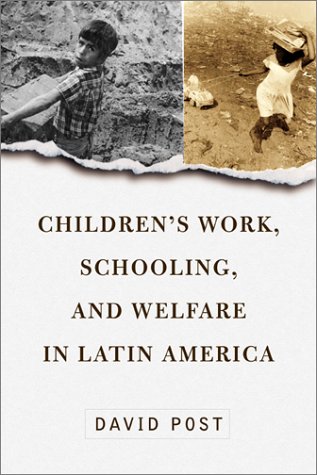Product desciption
Childrens Work Schooling And Welfare In Latin America David Post by David Post 9780813339153, 9781429489232, 0813339154, 1429489235 instant download after payment.
From the 1980s through the 1990s, children in many areas of the world benefited from new opportunities to attend school, but they also faced new demands to support their families because of continuing and, for many, worsening poverty. Children's Work, Schooling, And Welfare In Latin America is a comparative study of children, ages 12-17, in three different Latin American societies. Using nationally-representative household surveys from Chile, Peru, and Mexico, and repeatedly over different survey years, David Post documents tendencies for children to become economically active, to remain in school, or to do both. The survey data analyzed illustrates the roles of family and regional poverty, and parental resources, in determining what children did with their time in each country. However, rather than to treat children's activities merely as demographic phenomena, or in isolation of the policy environment, Post also scrutinizes the international differences in education policies, labor law, welfare spending, and mobilization for children's rights. Children’s Work shows that child labor will not vanish of its own accord, nor follow a uniform path even within a common geographic region. Accordingly, there is a role for welfare policy and for popular mobilization. Post indicates that, even when children attend school, as in Peru or Mexico, many students will continue to work to support the family. If the consequence of their work is to impede their educational success, then schools will need to attend to a new dimension of inequality: that between part-time and full-time students.


